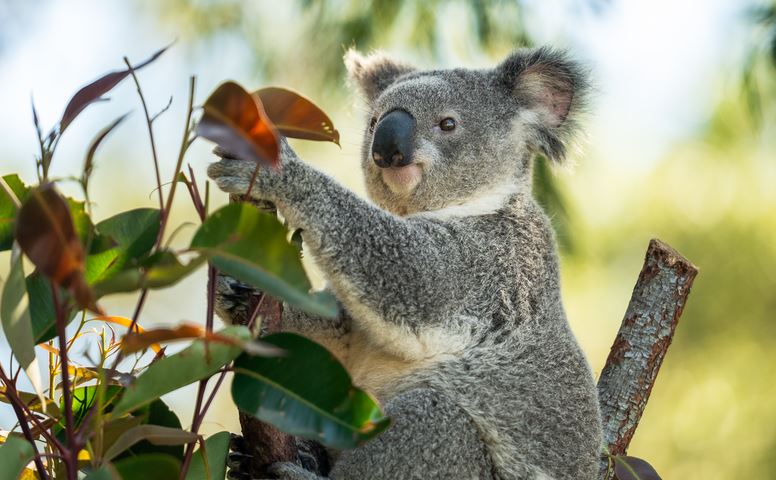In a world first, a vaccine has been approved to protect Australia’s endangered koalas from infection and death caused by chlamydia.
Developed by the University of the Sunshine Coast, the vaccine’s approval by Australia’s veterinary medicine regulator is a major step in the fight against one of the greatest threats to the long-term survival of the nation’s iconic marsupial.
Led by Professor of Microbiology Peter Timms, University of the Sunshine Coast researchers have spent more than 10 years developing the vaccine to protect koalas from the disease which can cause painful urinary tract infections, infertility, blindness and even death.
“UniSC knew a single-dose vaccine, without the need for a booster, was the answer to reducing the rapid, devastating spread of this disease, which accounts for as much as half of koala deaths across wild populations,” Professor Timms said.
“Some individual wild colonies, where infection rate can be as high as 70 percent, are edging closer to extinction every day.
“We were determined to do the hard yards to move from research to this vital next stage – a high-quality, veterinary-approved product that can now be used in wildlife hospitals, veterinary clinics and in the field to protect the nation’s most at-risk koalas.”
Until now, antibiotics were the only treatment available for infected koalas, but they can disrupt a koala’s ability to digest eucalyptus leaves – its sole source of food – leading to starvation and, in some cases, death. They also often fail to prevent future infection, leaving populations vulnerable.
A decade of clinical data, gathered through multiple vaccination trials, confirmed the vaccine’s safety and effectiveness. This includes the largest and longest-ever study of wild koalas, led by UniSC Senior Researcher Dr Sam Phillips.
“This study found it reduced the likelihood of koalas developing symptoms of chlamydia during breeding age and decreased mortality from the disease in wild populations by at least 65 percent,” Dr Phillips said.
“The vaccine has been trialled on hundreds of wild koalas, others in captivity and wildlife hospitals, and over multiple generations.” Dr Philips said.
“It’s based on Chlamydia pecorum’s major outer membrane protein (MOMP), and offers three levels of protection – reducing infection, preventing progression to clinical disease, and, in some cases, reversing existing symptoms.”
Professor Timms said there was still much to be done – including securing funding and donations to enable the national rollout of the approved vaccine to vulnerable populations.
“Every contribution will go towards vaccinating at-risk koalas and to help reverse the alarming impacts of this disease,” he said.
“We are also continuing to refine the product and conduct ongoing research to ensure the vaccine’s long-term success.”
UniSC drew upon the expertise and resources of global and national partners and supporters to advance the vaccine development.
The vaccine is being produced in partnership with the independent Australian-owned animal health company Tréidlia Biovet.
It uses an adjuvant originally developed by the University of Saskatchewan’s Vaccine and Infectious Disease Organization (VIDO), the International Vaccine Institute, the University of British Colombia and Dalhousie University, with funding from the Bill and Melinda Gates Foundation.
Other collaborators include Morris Animal Foundation, Rane Pharma, Canada and global animal health company Ceva Santé Animale who leveraged complementary expertise to overcome hurdles to help bring the project to its final stages. It also provided funding through its Ceva Wildlife Research Fund.








